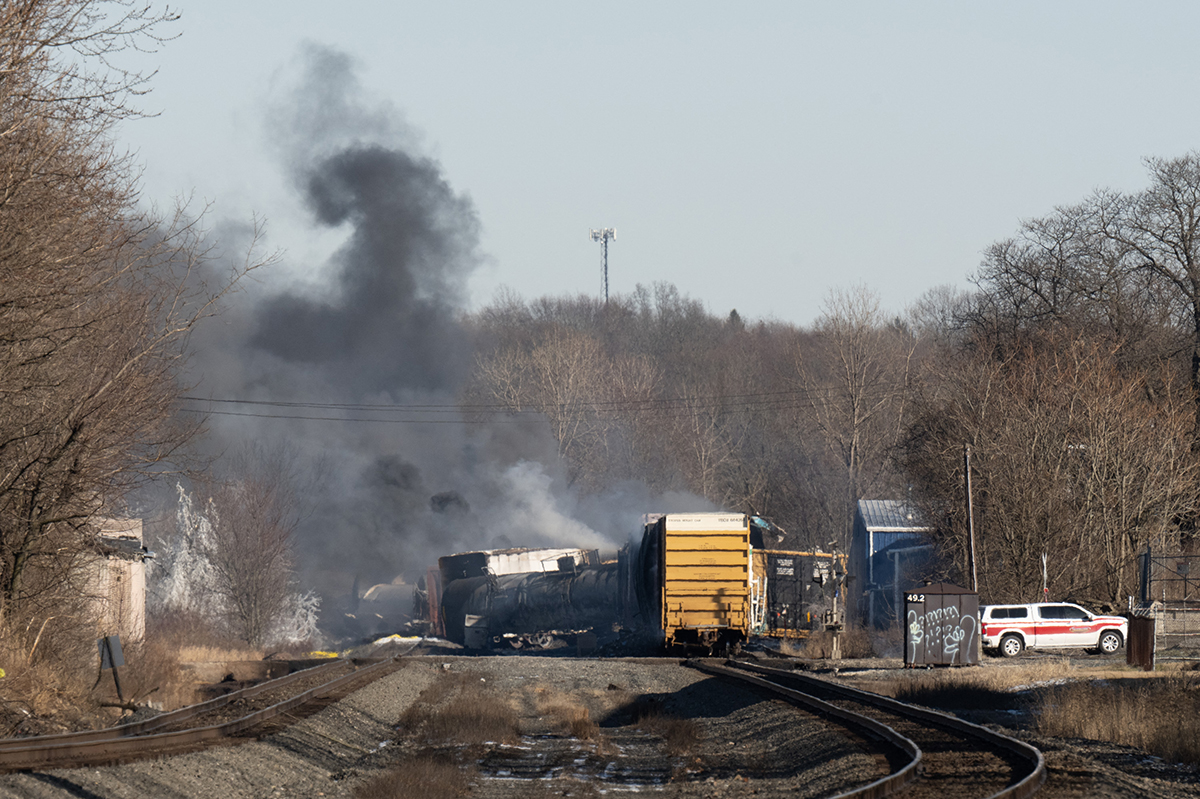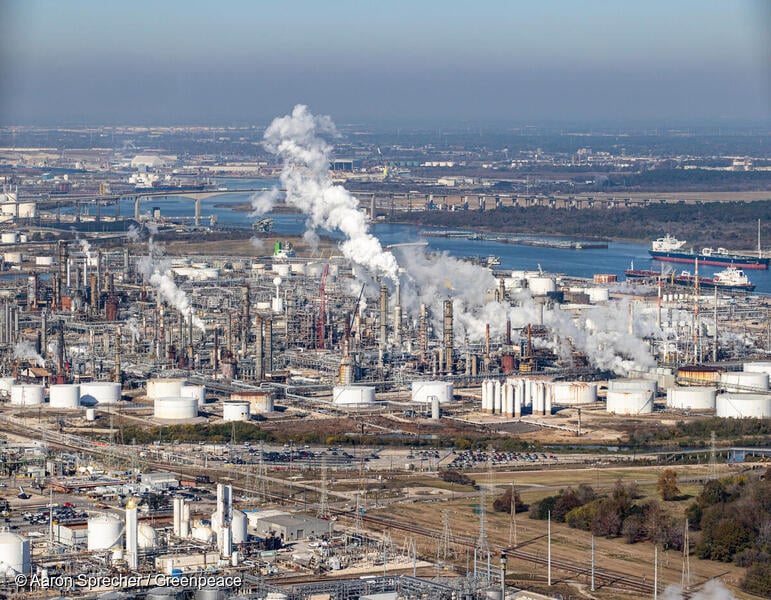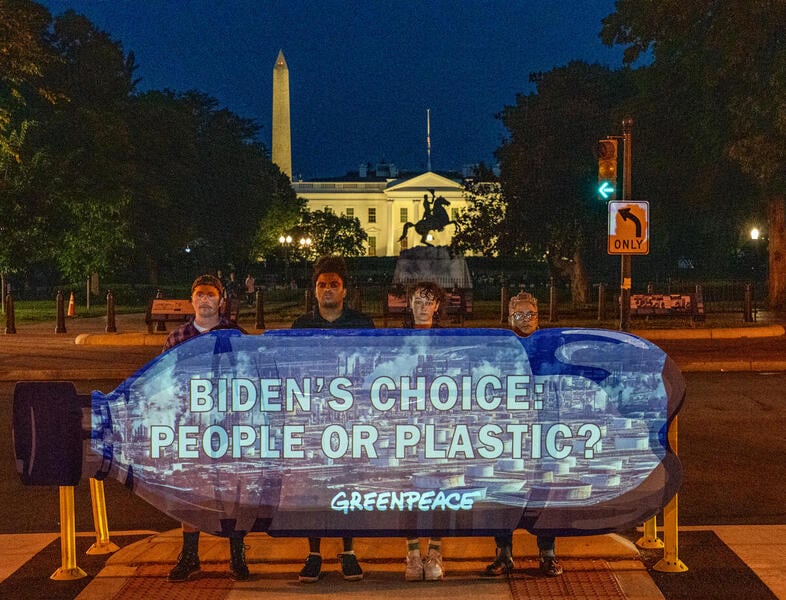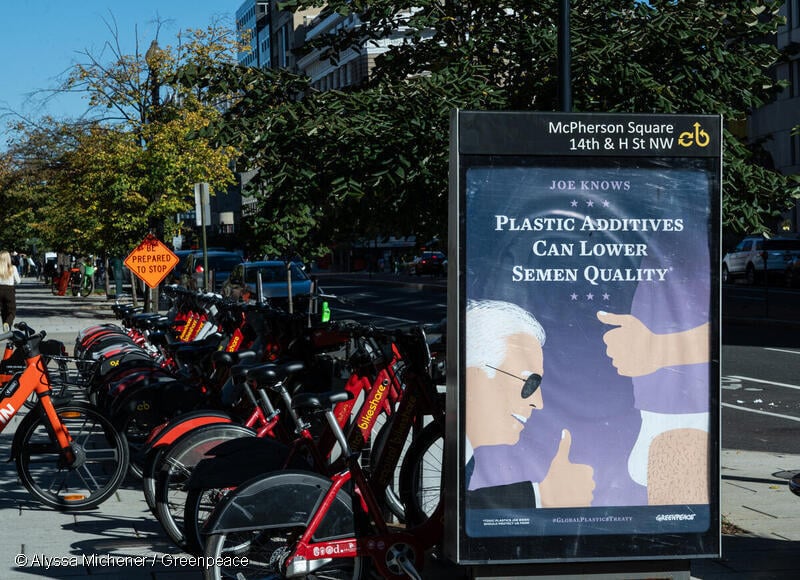In response to the train derailment in East Palestine, Ohio, on February 3 that spilled at least four toxic chemicals hazardous to human health and the environment, John Hocevar, Greenpeace Oceans Campaign Director, said: “We are deeply concerned for the health and well being of all residents of East Palestine exposed to toxic chemicals in this ongoing disaster. One of these, polyvinyl chloride (PVC), is the third-most widely produced plastic in the world. It is also one of the most dangerous forms of plastic.”

In response to the train derailment in East Palestine, Ohio, on February 3 that spilled at least four toxic chemicals hazardous to human health and the environment, John Hocevar, Greenpeace Oceans Campaign Director, said: “We are deeply concerned for the health and well being of all residents of East Palestine exposed to toxic chemicals in this ongoing disaster. One of these, polyvinyl chloride (PVC), is the third-most widely produced plastic in the world. It is also one of the most dangerous forms of plastic.”

Washington DC (February 15, 2023)—In response to the train derailment in East Palestine, Ohio, on February 3 that spilled at least four toxic chemicals hazardous to human health and the environment, John Hocevar, Greenpeace Oceans Campaign Director, said: “We are deeply concerned for the health and well being of all residents of East Palestine exposed to toxic chemicals in this ongoing disaster. One of these, polyvinyl chloride (PVC), is the third-most widely produced plastic in the world. It is also one of the most dangerous forms of plastic.”
Charlie Cray, Greenpeace USA Senior Strategist, said: “Trains that carry dangerous chemicals used to make plastic packaging and other unnecessary products cross the country every day, putting millions of people in danger. They are exempt from EPA’s accident prevention Risk Management Program (RMP), which was created to prevent major chemical disasters. The ultimate solution to the problem lies upstream at the source of production, where inherently safe technologies and ecologically compatible materials can be substituted for toxic chemicals and eliminate the number of “bomb trains” trundling through communities.”
Hocevar continued: “The devastation caused by these plastics extends far beyond those suffering in Ohio. Increased plastic production that uses these chemicals exposes thousands of people to these risks daily, especially Black and Brown communities where processing plants are predominantly located. Communities surrounding PVC production facilities suffer from serious toxic chemical pollution of their groundwater supply, surface water, and air. Workers in these facilities often suffer some of the worst health impacts. We cannot allow petrochemical corporations to continue to put their own profits above the health of their workers or the surrounding communities.”
In addition to the risk to human health, the spill will likely have long-term implications for Ohio River Valley ecosystems and may put endangered species like the eastern hellbender at even greater risk of extinction.
Hocevar added: “The Biden Administration has a responsibility to help impacted communities along the Ohio-Pennsylvania border immediately. They must also ensure they adopt measures that prevent disasters like these from ever happening again – and protect everyone exposed to these toxic chemicals. The Environmental Protection Agency is reviewing its Risk Management Program this year. It is time for President Biden’s EPA to ensure strong protections for human health and the environment.”
More than 100,000 people signed a petition calling upon the EPA to issue new rules that will ensure that high-risk chemical plants switch to safer chemicals or processes that can actually eliminate the possibility of a disaster.
###
Greenpeace USA is part of a global network of independent campaigning organizations that use peaceful protest and creative communication to expose global environmental problems and promote solutions that are essential to a green and peaceful future. Greenpeace USA is committed to transforming the country’s unjust social, environmental, and economic systems.



